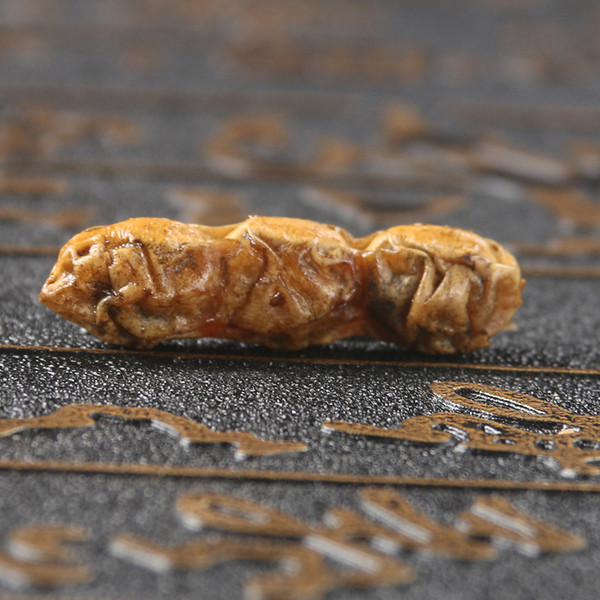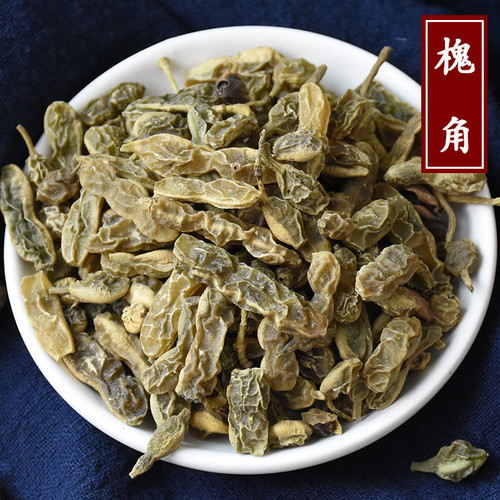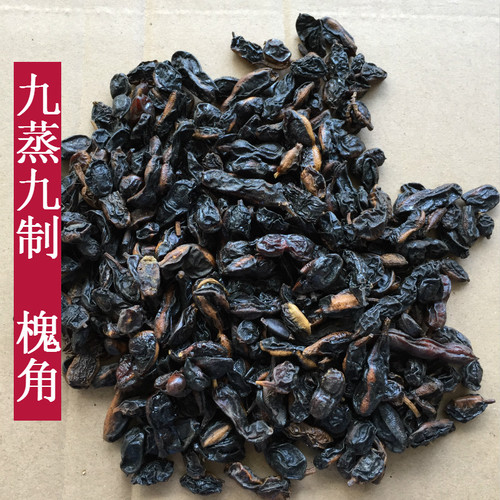Product Overview
Parts used: Dried flower or flower bud
TCM category: Herbs that stop bleeding
TCM nature: Cool
TCM taste(s): Bitter
Meridian affinity: Large intestine Liver
Scientific name: Sophora japonica or Styphnolobium japonicum
Other names: Sophora flowers
Use of pagoda tree flowers (Huai Hua) in TCM
Please note that you should never self-prescribe TCM ingredients. A TCM ingredient is almost never eaten on its own but as part of a formula containing several ingredients that act together. Please consult a professional TCM practitionner, they will be best able to guide you.
Preparation: Remove impurities and dry
Dosage: 5 - 10g
Main actions according to TCM*: Cools the Blood to stop bleeding and eliminates excessive Fire in the Liver
Primary conditions or symptoms for which pagoda tree flowers may be prescribed by TCM doctors*: Hematochezia Dysentery Bloody sputum Nosebleed Headache
Key TCM concepts behind pagoda tree flowers (Huai Hua)'s properties
In Traditional Chinese Medicine (TCM), pagoda tree flowers are plants that belong to the 'Herbs that stop bleeding' category. Like the name indicates these herbs tend to have hemostatic properties, meaning that they help stop various types of hemorrhages and echymosis. Unlike other herbs they often tend to be used externally.
Furthermore pagoda tree flowers are plants that are Cool in nature. This means that pagoda tree flowers tend to help people who have too much "heat" in their body, although with less effect than a plant that would be Cold in nature. Balance between Yin and Yang is a key health concept in TCM. Those who have too much heat in their body are said to either have a Yang excess (because Yang is Hot in nature) or a Yin deficiency (Yin is Cold in Nature). Depending on your condition pagoda tree flowers can help restore a harmonious balance between Yin and Yang.
Pagoda tree flowers also taste Bitter. The so-called "five elements" theory in Chinese Medicine states that the taste of TCM ingredients is a key determinant of their action in the body. Bitter ingredients like pagoda tree flowers tend to have a cleansing action on the body by clearing heat, drying dampness and promoting elimination via urination or bowel movements.
The tastes of ingredients in TCM also determine what organs and meridians they target. As such pagoda tree flowers are thought to target the Large intestine and the Liver. In TCM the Large Intestine receives the "impure" parts of the digested food from the Small Intestine, absorbs the remaining fluids and excrete the remainder as feces. The Liver on the other hand is often referred as the body's "general" because it is in charge of regulating the movements of Qi and body fluids. It also takes a leading role in balancing our emotions.
Use of pagoda tree flowers (Huai Hua) as food
Pagoda tree flowers are also eaten as food.








